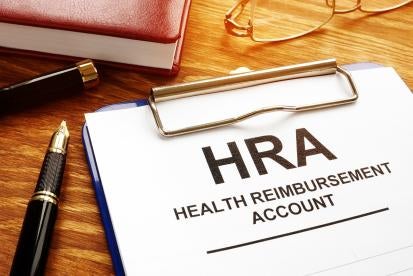In a year where COVID-19 has occupied much of the activity for the staff responsible for the Hospital Outpatient Rule, there have still been some significant changes in this year’s proposed rulemaking. One in particular will have significant implications for hospital operations and strategic planning. Specifically, the Inpatient Only (IPO) list will, if Centers for Medicare & Medicaid Services’s (CMS) plan moves forward, be dismantled over the next three years. While physicians may applaud the agency for giving them back their ability to exercise medical judgment, hospitals must now second-guess these decisions or face loss of revenue. Additionally, over time, competition for these services, which used to be solely the province of hospitals, will certainly occur, reducing the revenues associated with these procedures.
A. CMS Announces Phase Out of IPO List
CMS announced its proposal to phase out the IPO list in the 2021 outpatient prospective payment system (OPPS) Proposed Rule published August 12, 2020.1 If finalized, the phase-out will occur over the course of three years.2 Throughout this three year period, procedures will be moved from the IPO list and priced on the OPPS fee schedule.3 CMS proposes that this change begin with “the removal of approximately 300 musculoskeletal-related services.”4 CMS notes that the IPO list was initially created in 2000 “to identify services that require inpatient care because of the invasive nature of the procedure, the need for at least 24 hours of postoperative recovery time, or the underlying physical condition of the patient who would require the surgery and, therefore, the service would not be paid by Medicare under the OPPS.”5 Though CMS notes and appreciates the concern of prior commentators regarding the benefits of the bright-line standards as it affects patient care, CMS also reiterates that the removal of the IPO list is primarily based upon the belief that “the physician should use his or her clinical knowledge and judgment, together with consideration of the beneficiary’s specific needs, to determine whether a procedure can be performed appropriately in a hospital outpatient setting or whether inpatient care is required for the beneficiary.”6
B. Practical Implications for Hospitals
1. The Two-Midnight Rule
Though the elimination of the IPO list may be considered a welcome source of flexibility for physicians when choosing a setting for treatment, hospitals will likely argue that without the payment certainty that the IPO list provided, they will now be subject to the same murkiness that otherwise applies to compliance with the Two-Midnight Rule. As noted, the removal of the IPO list means that hospitals submitting claims for the hitherto IPO list procedures will now be subject to the requirements of the Two-Midnight Rule.7 For purposes of background, the Two-Midnight Rule was originally introduced in the 2014 IPPS Final Rule8 and was subsequently updated in the 2016 OPPS Final Rule.9 Under the original Two-Midnight Rule, CMS provided that there must exist a “reasonable expectation of the two-midnight stay when the admission order is written” in order for the stay to be generally payable under Medicare Part A, otherwise, the services should be billed as outpatient services.10 CMS eased this requirement in the 2016 OPPS Final Rule by providing that cases which did not meet the two-midnight requirement may be eligible for payment under Medicare Part A on a case-by-case basis as determined by the treating physician, which would later be subject to medical review.11 Compliance with the Two-Midnight Rule remains challenging, as evidenced by a spate of recent Office of Inspector General (OIG) audits finding continued noncompliance.12 The addition of the IPO list procedures will only exacerbate the compliance challenge and convert almost certain inpatient payments into revenue that is at some degree of risk related to two-midnight rule review. Hospital utilization review staff should start engaging with ordering physicians now to discuss what criteria will be reasonable for deciding whether a procedure is inpatient or outpatient, in order to allow for sufficient training before the rule takes effect.
2. Competition Considerations
Additionally, inpatient providers will also likely find the removal of the IPO list concerning from a competition perspective. It is only a matter of time until all of the procedures that had been on the IPO list will instead by on the Ambulatory Surgery Center (ASC) list, meaning that physicians will be able to refer patients to their own ASCs for these procedures. Indeed, even in the current year, CMS is proposing to add 11 procedures (nine of which were formerly on the IPO list) to the ASC list, including hip replacements.13 CMS’s decision may therefore be just as much about cost savings to the Medicare program as it is about safeguarding physician medical decision-making.
C. Comments
Hospitals that believe that certain procedures should categorically be done on an inpatient only basis should submit comments during the comment period. That period ends later than usual this year, due to the COVID-19 delays in the rulemaking. Accordingly, providers can submit comments up to October 5 this year.
Footnotes
1 85 Fed. Reg. 48,772 (here).
2 85 Fed. Reg. 48,772, 48,774.
3 85 Fed. Reg. 48,772, 48,911.
4 Id.
5 85 Fed. Reg. 48,772, 48,908–909.
6 85 Fed. Reg. 48,772, 48,909. Ironically, in this same proposed rule, CMS has actually proposed to take away the physician’s ability to use their medical judgment, insofar as to cervical fusion with disc removal and implanted spinal neurostimulators are concerned. In those cases, CMS will now require prior authorizations before Medicare will agree to pay for those services. 85 Fed. Reg. 48,772, 49,028–29.
7 42 C.F.R. § 412.3.
8 78 Fed. Reg. 50,495.
9 80 Fed. Reg. 70,297.
10 78 Fed. Reg. 50,495, 50,946; See also Fact Sheet: Two-Midnight Rule available here.
11 80 Fed. Reg. 70,297, 70,305.
12 See Dept. Health & Human Servs, Office of Inspector General, Medicare Hospital Provider Compliance Audit: St. Vincent Hospital, A-05-18-00040 (November 2019), here, and Dept. Health & Human Servs, Office of Inspector General, Medicare Hospital Provider Compliance Audit: Carolinas Hospital, A-04-18-08063 (November 2019,) here. See also OIG Report in which OIG recommended that CMS “conduct routine analysis of hospital billing and target for review the hospitals with high or increasing numbers of short inpatient stays that are potentially inappropriate under the 2-midnight policy,” here.
13 85 Fed. Reg. 48,958; 85 Fed. Reg. 48,963; See CY 2020 Inpatient Only (IPO) list, here.




 i
i


